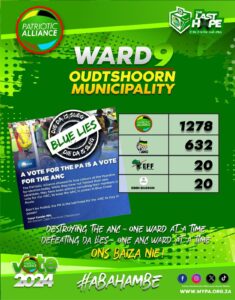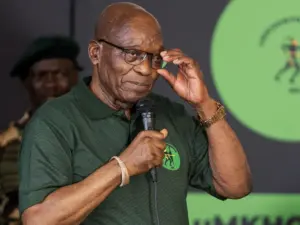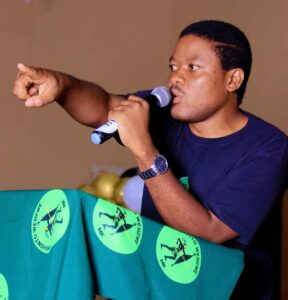By: Clyde Ramalaine
In the aftermath of the recent unrest that flared in Kwa-Zulu Natal and Gauteng, the subject of a non-caring leadership is emerging stronger daily. The total number of people that died in the unrest is placed at +300 people. By any standard, this constitutes a massacre of note. This translates to 10 Marikanas. Of these, over 33 were killed in the Phoenix area alone, in what can be accepted as nothing short of racial hate crimes, performed in the name of protecting property.
South Africa ought to be in mourning for the dead. Is it not strange that the President has not yet announced a period of national mourning until now? Is it not peculiar that the usually vocal sectors of civil society, including Faith groups who, for whatever reasons, associate with the President, have not kept the state accountable to demand it leads in such mourning. Three hundred, many of whom young, lives snuffed out, and it appears the predominant concern for the Ramaphosa leadership is an obsession with material things, looted goods, damaged properties in the totality of the tragedy.
What could sit behind this total lack of appreciation for the lives lost, some brutally murdered? We are reminded of the words of General Bruce Clarke, “When things go wrong in your command, start searching for the reason in increasingly large circles around your own desk.” One appreciates Clarke’s assertion better when you look at the role of the President in the unrest. Things have gone horribly wrong with the unrest. May I suggest things are still going wrong? The intention of centralising the President is based on the fact that he represents the state in executive leadership, which means it is expected from him to lead.
The publicly acknowledged failure of the state to provide security confirms the notion of a non-caring state. On another level, it is a direct failure of his leadership since the proverbial buck stops by him. Ramaphosa holds that his recent cabinet reshuffling dealt with the collapse of the security cluster. However, the subject of consequence management remains glaringly absent. Former DOD Minister Mapisa-Nqakula was promoted to Speaker of Parliament. Ramaphosa retained Bheki Cele as Police Minister. Minister of SSA Ayanda Dlodlo was moved to Public Services and Administration. Her deputy, Zizi Kodwa, while still a deputy, now heads up SSA in the presidency. South Africa asks where is the much talked about consequence management here?
There is a growing assumption on the part of Ramaphosa that when he acknowledges failure, the acknowledgement by itself fixes the wrong. It is not good enough to merely acknowledge wrong, where is the necessary consequence management related to the leader himself?
In this instance, we expected Ramaphosa to mourn the lives lost in the unrest. One expects the president to make a concerted effort to visit the bereaved families, to be present in assisting these families. Is this not what is expected from the leader of the ANC and the State? Beyond statements of condemning looters and those who abused this for racist intentions, he is responsible for speaking to the deaths and to action initiatives of national mourning. It is expected of him to lead in bemoaning the loss of life. In any other nation that subscribes to democracy, these deaths would be mourned regardless of how they were brought about.
Perhaps one of the first errors Ramaphosa committed was his framing of the unrest in ethnic mobilisation description. President Ramaphosa, in his own words on July 12, said: “It is a matter of concern to all South Africans that some of these acts of violence are based on ethnic mobilisation,” He in the middle of the unrest dared to label it in frames of ‘ethnic mobilisation’.
Did this statement not become the catalyst for the Phoenix Massacre in which over 33 lives were lost? Did it not present the opportunity for some racist Indians out of a historical 1939 Indian assault to now felt entitled right to revenge and kill blacks in the name of defending and protecting their properties? Whom do we keep accountable for the Phoenix murders? Can those be separated from the words of the Head of State?
The second error Ramaphosa committed was to commend the communities for standing up in defence of their properties. Referring to the unrests and those he fingered as responsible for it, he said, “It has failed because of the efforts of our security forces, and it has failed because South Africans have rejected it and have stood up in defence; of our hard-won democracy.”
While read as noble, even a sense of pragmatism on the part of the president, the aforementioned presents more questions. When the President thanked the communities for stopping the unrest in protecting their communities, did he not inadvertently endorse and licensed vigilantism. Vigilantism is defined as “premeditated acts of force—or threatened force—by autonomous citizens.” The problem with condoning vigilantism in which people take the law into their hands is that you have no control over how the people will or may respond in protecting properties.
Phillip Davis, in his article headlined: ‘Governance, Failures, Vigilantism and its Dangers’, contends, “vigilantism is a calculated, wilful activity that takes place outside formal institutions but is sometimes tacitly supported or perpetrated by institutional actors.”
We also know that vigilantism is more prevalent in weak states that lack the capacity to provide security and services to citizens. The idea of a form of self-defence units as a means of protection cannot escape our painful history of the phenomenon of SDU [Self-Defence Units] under the apartheid government.
Therefore, it is incumbent on political leaders, more so the executive leader, to be cautious in celebrating people taking the law into their own hands because the state failed to fulfil its duties. A sub-culture of lawlessness borne from entitlement and as justified by the President may manifest.
Lacking the capacity to provide security and necessary services for its citizenry confirms a non-caring state. Unfortunately, the Ramaphosa leadership fits the bill of a non-caring state for this and other reasons. The fact that 300 lives are lost, and no effort is made to mourn their demise attests to the notion of an uncaring state. Not only is his leadership non-caring, but it has also bequeathed that to civil society groups that support him for their self-serving rea.
What South Africa in democracy deserves is genuine and sincere leadership attuned to the masses and active in addressing the historical and new anomalies. An administration that is honest and consistent, that consciously places the people first and not self-interest.
It longs for a leadership that is a good custodian of its citizen’s interests, rights and benefits. Yes, an oversight that gives effect to good stewardship over the resources and means of the state, which belongs to the people. A leadership that is accountable in every facet and none compromising on service delivery. An administration that owns up and practices consequence management. South Africa deserves leadership that develop solutions to its endemic unemployment, inequality and racialised poverty.
In what way does the indifference on the recent 300 deaths link back to the 2012 Marikana Massacre? While Ramaphosa was not in government at the time, his words of ‘concomitant action’ that contributed to 34 black lives murdered by the police cannot be ignored. In addition to this, Ramaphosa’s ongoing failure to visit Marikana despite many opportunities availed confirms his utter lack of appreciation for the importance of such human action. In this sense, it appears Ramaphosa registers a natural indifference to black people dying as both instances confirm.
Is this why there is no interest to lead in calling a national period of mourning? It seems that for Ramaphosa, those who gathered at the Marikana Koppie, like those who participated in the recent unrest, deserved to be killed. If true, we should accept that South Africa is led by a non-caring heartless leadership that stands indifferent in particular to losing black lives.







